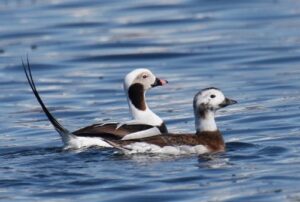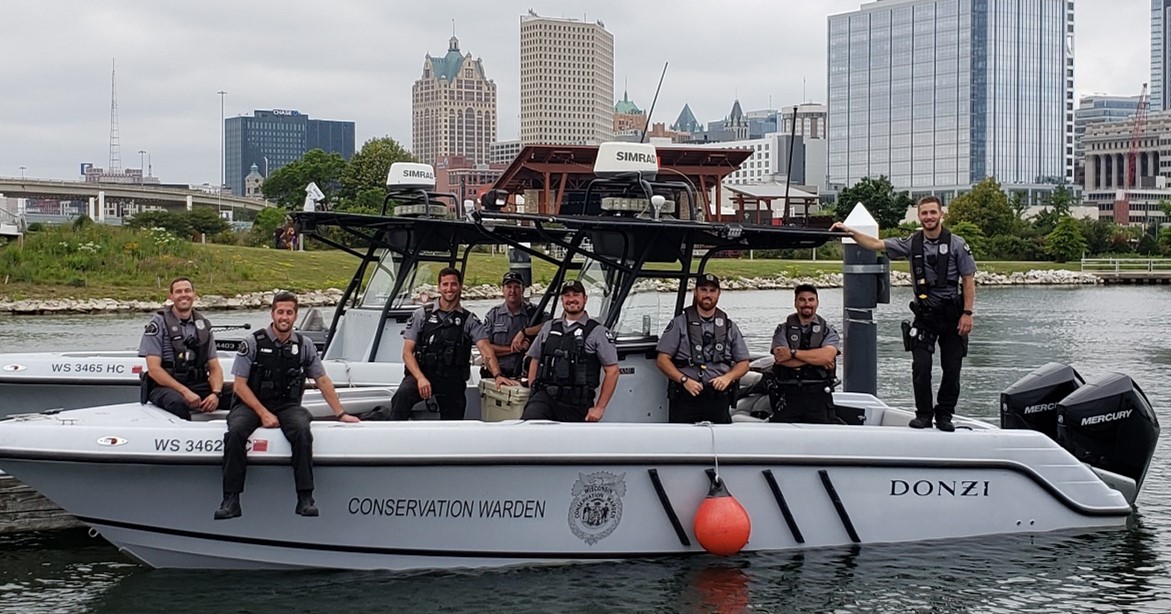Previous Rooted Vegetation And Shore Island Confusion Solved
An article from WWA’s Words From The Wardens.
This article originally appeared in Wisconsin Waterfowl Association’s June, 2022 eNewsletter.
 By DNR Marine Conservation Warden Isaac Hackett, Sheboygan and Manitowoc counties
By DNR Marine Conservation Warden Isaac Hackett, Sheboygan and Manitowoc counties
As we welcome our warmer months, it is the perfect time to consider the fall opportunities for the longer duck hunting seasons of the “Big Water,” officially known as Green Bay and Lake Michigan. In our regulations, it’s called the Open Water Zone.
The Open Water Zone was created in 2021 to provide more opportunities to hunt migrating ducks on Lake Michigan later in the season.
Before I get into the opportunities awaiting in the open seasons on these bigger waters, let me assure you that the rule oversight that surfaced in 2021 when the open seasons were announced has been solved.
RULE CONFUSION SOLVED
As you may recall, the initial rule did not include the rooted vegetation as “shoreline” or the Little and Long Tail islands in Green Bay. For context, open water hunting is defined as at least 500 feet from shore.
This rule oversight meant hunters could no longer hunt the from the islands that go from peninsulas to islands based upon the water levels of Lake Michigan when the “Southern Zone” opened and had to wait until the “Open Water Zone” opened. Because Lake Michigan was at a record high level, the points were now islands, thanks to the high water, which meant they could not be defined as shoreline.
The rule was amended for the 2022 season to include these islands and the rooted vegetation areas in the definition of “mainland shore.” This means that waterfowl hunters can use more of Green Bay in the early season and hunt these areas when the “Southern Zone” opens rather than wait.
As it goes with anything new in life, there can be some rough waters at the start. Now that we have that behind us, as a member of the DNR Marine Warden Unit, let me encourage you to look ahead and consider a trip to the Big Water. Wisconsin has incredible inland waters to enjoy waterfowl hunting, and Green Bay and Lake Michigan are worth a spot on your list.
BIG WATER SCHEDULE TIPS AND PROTECTED SPECIES
First, know your season dates. Go to our waterfowl hunting webpage to get a downloadable schedule of the seasons. The Big Water seasons are called Open Water Zone on the schedule.
You’ll notice the Open Water Zone runs on a different schedule that allows hunters more time in the winter to hunt ducks on Lake Michigan. The big lake often does not freeze over, allowing the ducks to stay there later in the season. Additionally, many of the waterfowl species that frequent the Big Water are diver species that migrate south later in the fall and winter.
Practically speaking, this allows waterfowl enthusiasts to hunt for diver and sea ducks later in the season while also allowing hunters in the southern and northern zones to hunt early for dabbling ducks on the inland waters. And all these dates stay true to those regulations established by the U.S. Fish and Wildlife Service.
And remember, there are protected species. There is a long list of fowl, shorebirds and other bird species that call the Great Lakes home and therefore cannot be hunted.
Common birds that are exceptional for bird watching but are illegal to hunt include:
- Sandhill cranes
- American white pelicans
- Double-crested cormorants
- Pied-billed grebes
- Trumpeter swans
SOME ACCESS SITES, BOATS AND OTHER WATERFOWL
Any public boat landing can be used by duck hunters. As for my area in Sheboygan and Manitowoc counties, Seagull Marina in Two Rivers is a very popular landing. People also use the Manitowoc Marina and Sheboygan Marina.
Members of my warden team also suggest Green Bay – Metro, Harbor Lights, Duck Creek, Suamico, Geanos, Pensaukee, Oconto Breakwater Park and Oconto County Park 1.
As far as boats are concerned, most people hunting in the open water areas use layout boats/blinds, saucer-shaped boats with a low profile and sit close to the water surface. Because there is no vegetation to hide in when hunting in the open water, the only way to hide is to keep a low profile.
The open water season is specifically a duck season, but other waterfowl can be hunted during open portions of the season, including geese. Geese are more commonly found near shore and therefore are not commonly targeted by open water hunters.

Long-Tailed Ducks
Long-Tailed Ducks
The long-tailed duck is an ocean-going duck that spends its breeding season in the far northern range of the Arctic, and a majority spend their winters on the ocean. However, there is a healthy population that migrates to the Great Lakes region and specifically Lake Michigan, during the winter. This duck is commonly targeted a mile or more offshore from layout blinds in the late portion of the season.
SAFETY, SAFETY, SAFETY
Along with big water and cold weather come numerous safety challenges. Here are some tips to deal with dangers presented by what many refer to as the deadliest lakes in the world.
Equipment
Always inspect your boat before any outing. Make sure all safety equipment is in your boat, in good condition and you know where it is.
Make sure to have at least the minimum required number of personal flotation devices (also known as life jackets), both wearable and throwable. Also, be sure you have flares, a noise-producing device and functional lighting equipment.
Make a list and check it twice, right down to making sure your drain plug is in place. I know most of you laugh and can remember a time you or a buddy forgot to put the plug in, but I have responded to multiple vessels in distress that have failed to properly install their drain plug.
Know Your Limits
It is imperative to understand both the ability of your boat to handle rough seas as well as your own ability to operate in such conditions.
Drive to your likely hunting spot in broad daylight and find the closest launch or place to get off the water in case of emergency. Wisconsin’s Great Lakes can go from calm enough to skip a rock to Ludington to surf-sized waves in a matter of minutes.
Thick fog banks that can take visibility to near-zero roll in without warning. Frigid water temps from changing winds and currents can leave you hypothermic even in the dog days of summer.
If you don’t feel safe, don’t go.
Common Safety Violations
A common safety issue we run into as wardens is hunters traveling to a hunting spot with docking lights. The bright white lights completely obscure a vessel’s navigational lights and blind other operators. Do not activate docking lights until you are at your spot and setting up.
Do not carry loaded firearms in your boat, as the unsteady nature of a vessel underway causes a high risk for accidental discharge.
Do not discharge a firearm from a vessel that is being propelled by a motor or is still under motion from a motor, even if it has been turned off.
MEET THE DNR MARINE WARDEN TEAM

The Marine Enforcement Team are Wisconsin Conservation Wardens who patrol, respond to reported violations, engage in search and rescue, investigate crashes and perform other responsibilities on Lake Michigan and Superior, including tributaries to their first impoundment.
We deal with all outdoor activities on the Great Lakes, including duck hunting, sport trolling, commercial fishing, environmental, waterway/wetlands and recreational vehicles. The unit covers the area stretching from the Wisconsin-Illinois state line in Kenosha County to the Wisconsin-Michigan state line in Marinette County and a portion of Lake Superior.
If you see any violations occurring while hunting, fishing or recreating, please contact the Wisconsin DNR tip hotline at 1-800-TIP-WDNR.
Thanks for your time, stay safe and enjoy your hunting!
